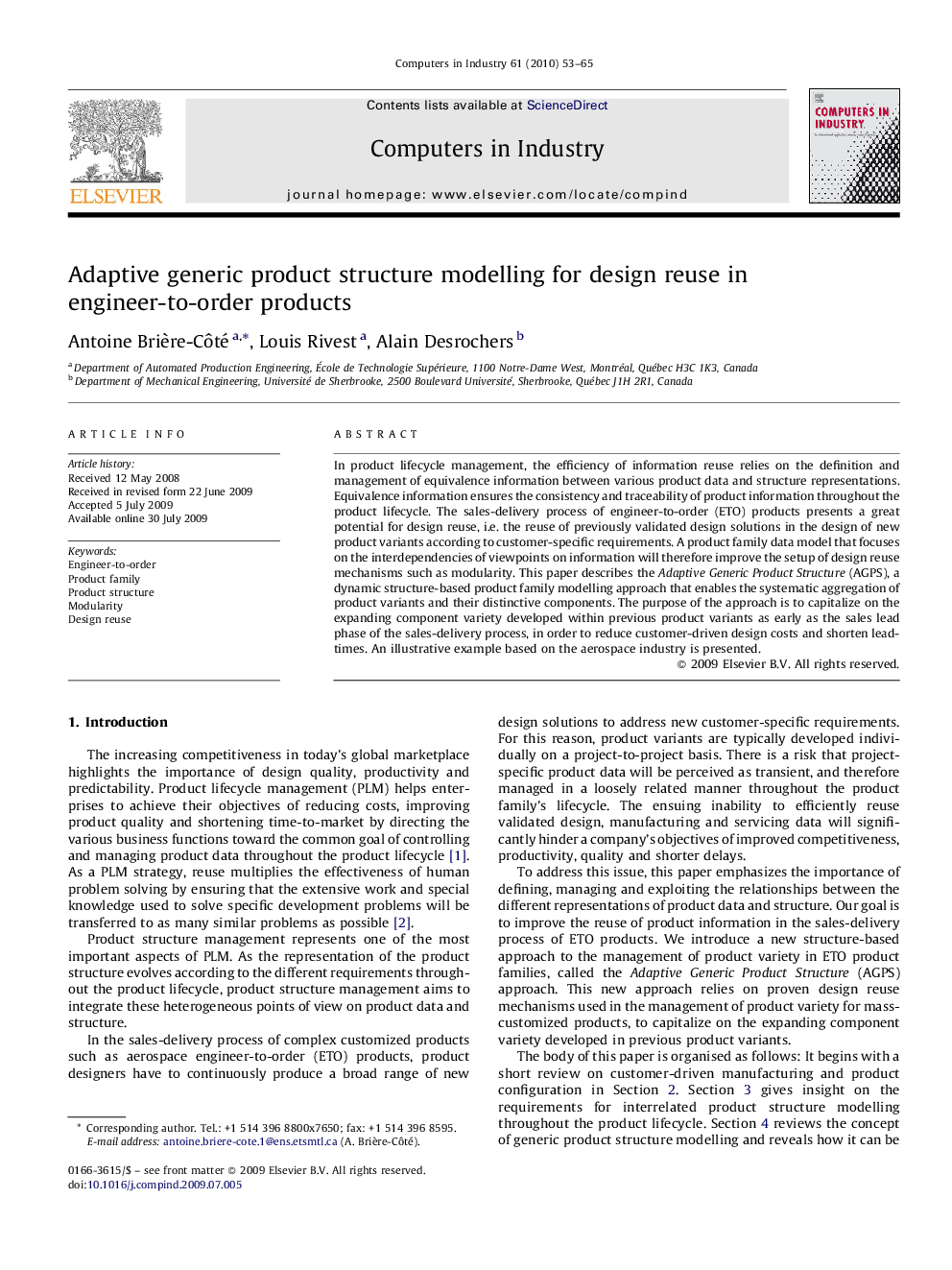| Article ID | Journal | Published Year | Pages | File Type |
|---|---|---|---|---|
| 509449 | Computers in Industry | 2010 | 13 Pages |
In product lifecycle management, the efficiency of information reuse relies on the definition and management of equivalence information between various product data and structure representations. Equivalence information ensures the consistency and traceability of product information throughout the product lifecycle. The sales-delivery process of engineer-to-order (ETO) products presents a great potential for design reuse, i.e. the reuse of previously validated design solutions in the design of new product variants according to customer-specific requirements. A product family data model that focuses on the interdependencies of viewpoints on information will therefore improve the setup of design reuse mechanisms such as modularity. This paper describes the Adaptive Generic Product Structure (AGPS), a dynamic structure-based product family modelling approach that enables the systematic aggregation of product variants and their distinctive components. The purpose of the approach is to capitalize on the expanding component variety developed within previous product variants as early as the sales lead phase of the sales-delivery process, in order to reduce customer-driven design costs and shorten lead-times. An illustrative example based on the aerospace industry is presented.
